Should the Government ban driven Grouse shooting?
A conversation between Kerry McCarthy MP and Chris Packham
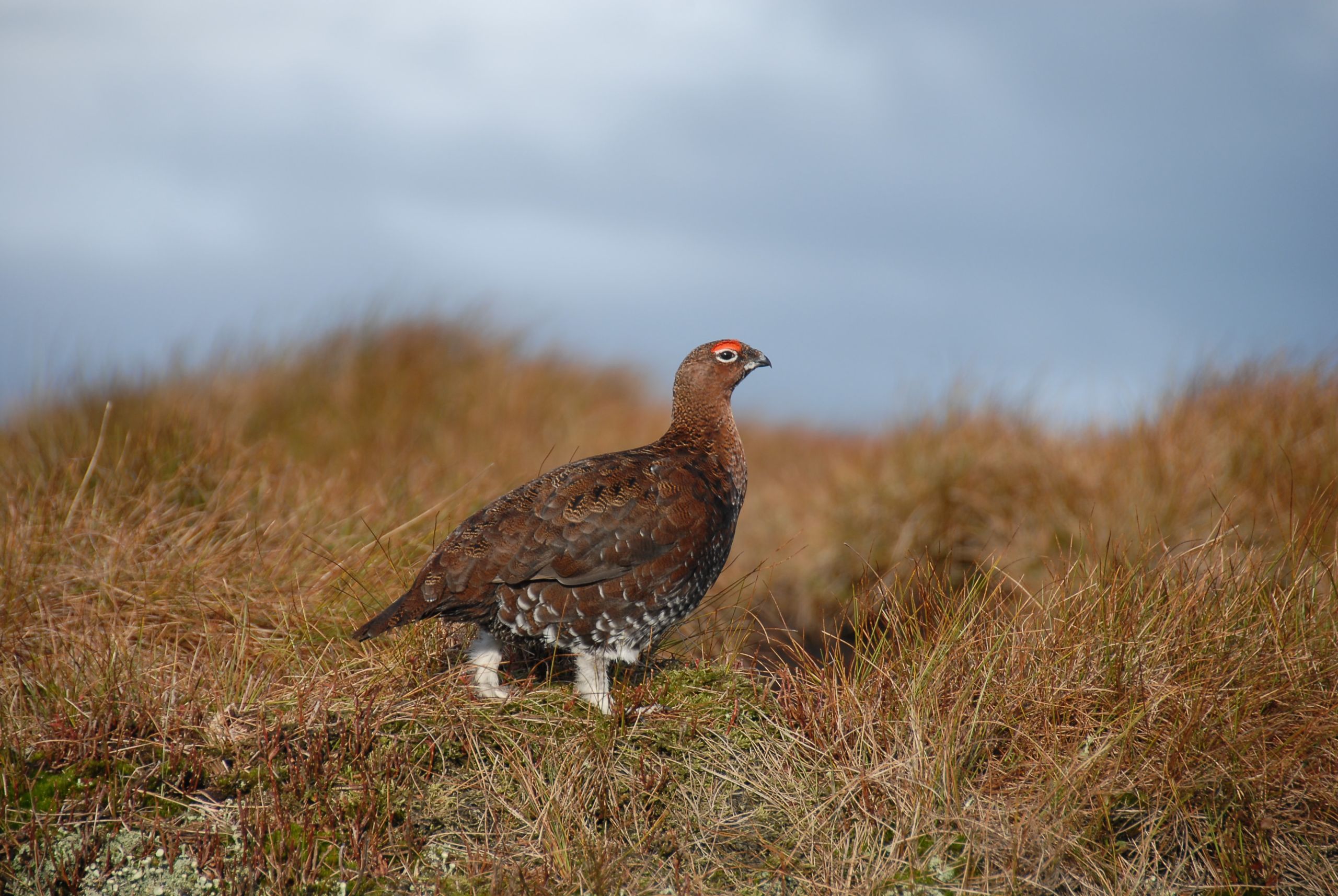
Chris Packham is an English naturalist, nature photographer, television presenter and author, best known for his television work including Springwatch and the CBBC children's nature series The Really Wild Show.
Chris was unhappy with the laws in the UK about shooting Grouse and so he, and fellow campaigners Ruth Tingay and Mark Avery launched a petition to ban driven Grouse shooting.
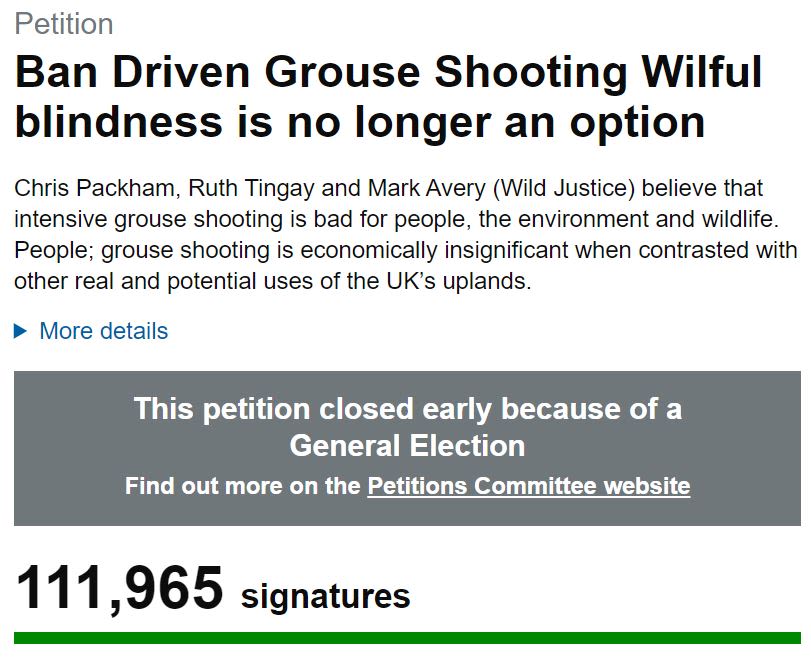
source: https://petition.parliament.uk/
source: https://petition.parliament.uk/
The petition received over 100,000 signatures, of which the highest concentration were from the Calder Valley, Sheffield Hallam, the High Peak, and the Derbyshire Dales constituencies.
The petition was unfortunately brought to a halt on 6th of November 2019 because an election was called meaning the scheduled debate could not go ahead.
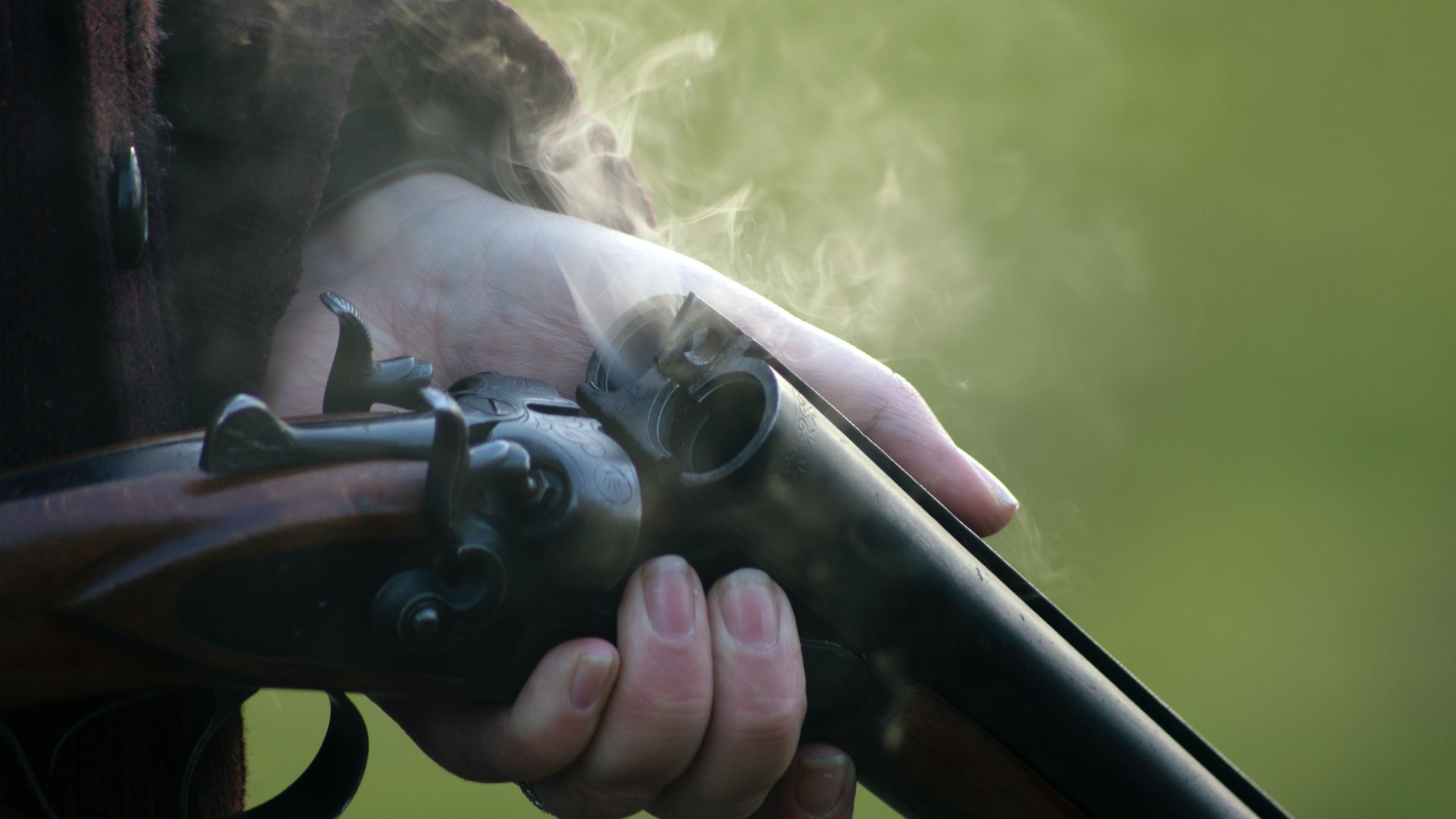
To catch up on the progress of this work Kerry McCarthy MP, then a member of the Petitions Committee spoke to Chris Packham to discuss the variety of issues involved in Grouse shooting. Here are the key points they covered in that call, you can also watch the full call below.
What is driven grouse shooting and how does it work?
Chris Packham: Well, essentially, driven grouse shooting is about maximising the number of grouse, because the way that the shoot is actually practised is about driving large numbers of birds pass past rows of guns out on the moorland so that they can have multiple shots at multiple birds flying over.
And in order to satisfy that, because of the vagaries of weather, the movement of birds, the productivity of the breeding season for grouse, et cetera, et cetera. the only way to satisfy continual good shooting for those who wish to practise it is to have very large numbers of grouse to the detriment of pretty much everything else.
Kerry McCarthy MP: Could we just be clear, because I think some people think of shooting as somebody stalking through the undergrowth with a rifle until they see a pheasant or a partridge or a grouse there, this is something very different.
Chris Packham: This is rows of what we call butts, which is where the shooters conceal themselves across the top of the moor. So they're in a line so that there's, you know, safety for the shooters of course. Beaters with their dogs push the birds towards them. The idea being that the birds take off and fly very rapidly past them, making the shot difficult.
And sometimes the objective, you know, from someone who's not a shooter, is perceived to be success being the largest number of birds killed.
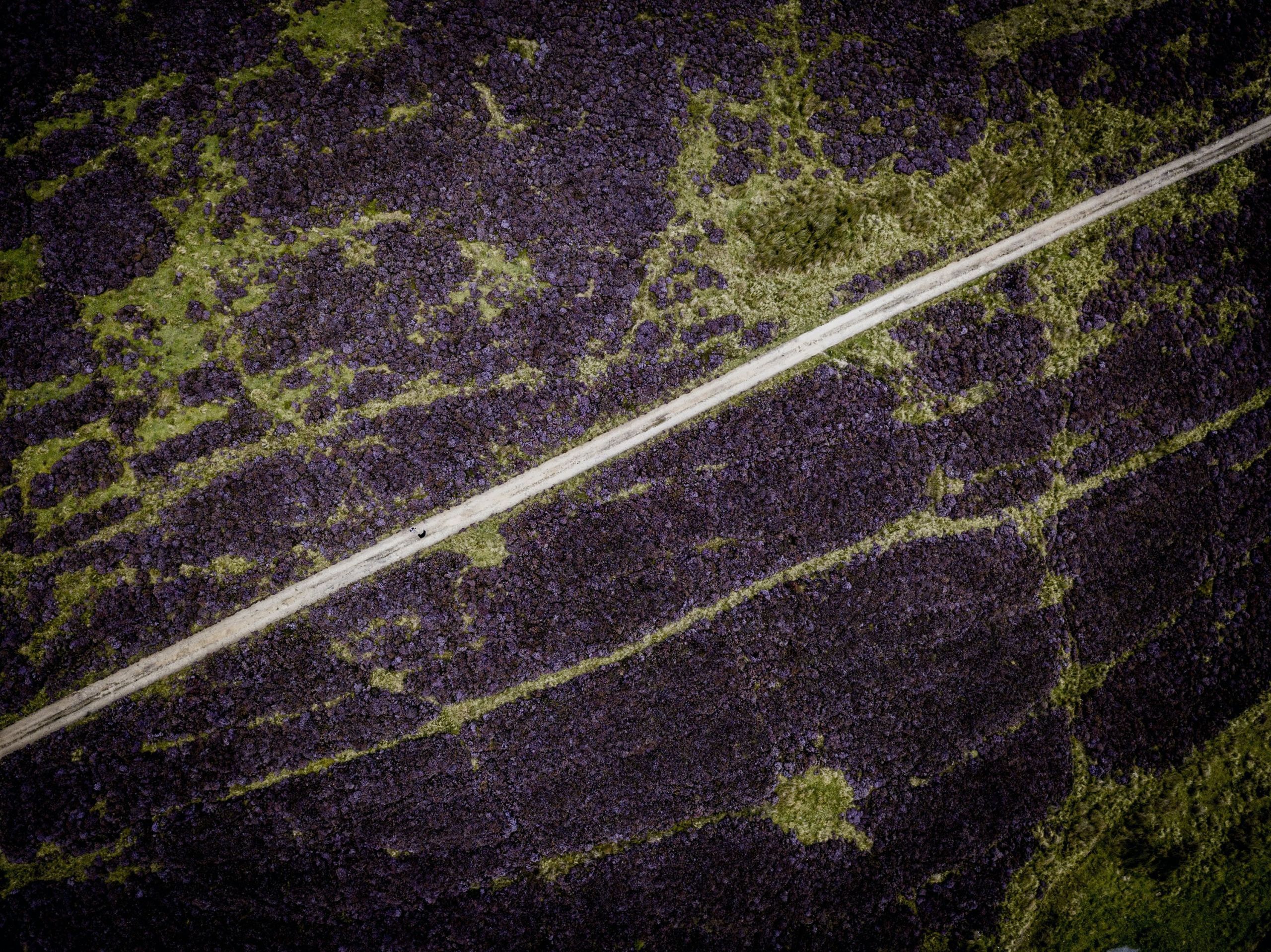
Birds of Prey are being illegally killed
Chris Packham: And this brings us to the first of many concerns, which is the management of predators. And there is, again, no doubt, of course, that many predatory birds, given the opportunity, will feed on grouse or particularly their young.
So they are not tolerated on driven grouse moors. And as a consequence of that, we see ongoing wildlife crime. And again, I draw your attention to a report that's been published just recently by the RSPB saying that their investigations unit has been overrun with reports of birds of prey being killed illegally in the recent weeks of the lockdown.
Amongst the cases being dealt with, the police are seeing a significant number of ongoing investigations on land managed for grouse shooting and the birds concerned are hen harriers, peregrines, buzzards, red kites, goshawk and even a barn owl.
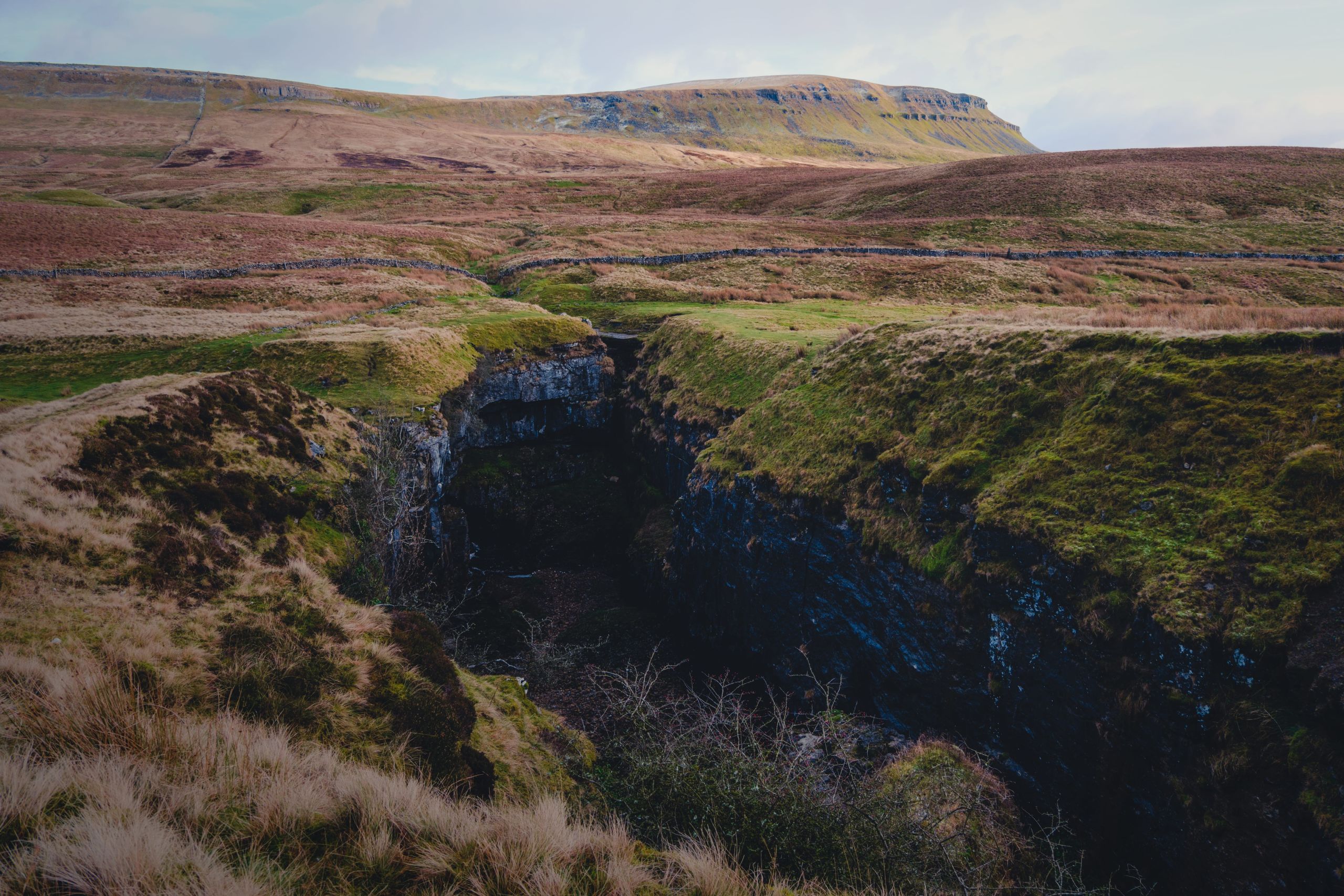
Other animals in this environment are suffering as a consequence
Kerry McCarthy MP: And I suppose the underlying thing is the grouse aren't being protected for the sake of conservation. It's not because they're rare and they need protecting from other creatures. They've been protected so they can be shot.
Chris Packham: Yes. I mean, that is the bottom line. And we should point out, of course, that whilst we've been talking about the illegal persecution of birds of prey, the legal persecution of lots of other animals also takes place on grouse moors.
Weasels and stoats caught in spring traps. They die slowly if their injuries are such that they’re not killed instantly. Crows are caught in cage traps, endure stressful confinement until someone comes to beat them to death. Foxes are caught in snares, Horrible way of trapping animals.
And then of course, the accidental victims of these things. All sorts of other animals. I've seen dippers, red squirrels, endangered protected species that get into these traps that are set for these things.
And I think that what we have to accept is that, you know, the legal protections for these animals are insufficient and they're inconsistent. They allow levels of suffering that we would never tolerate if these were domestic animals.
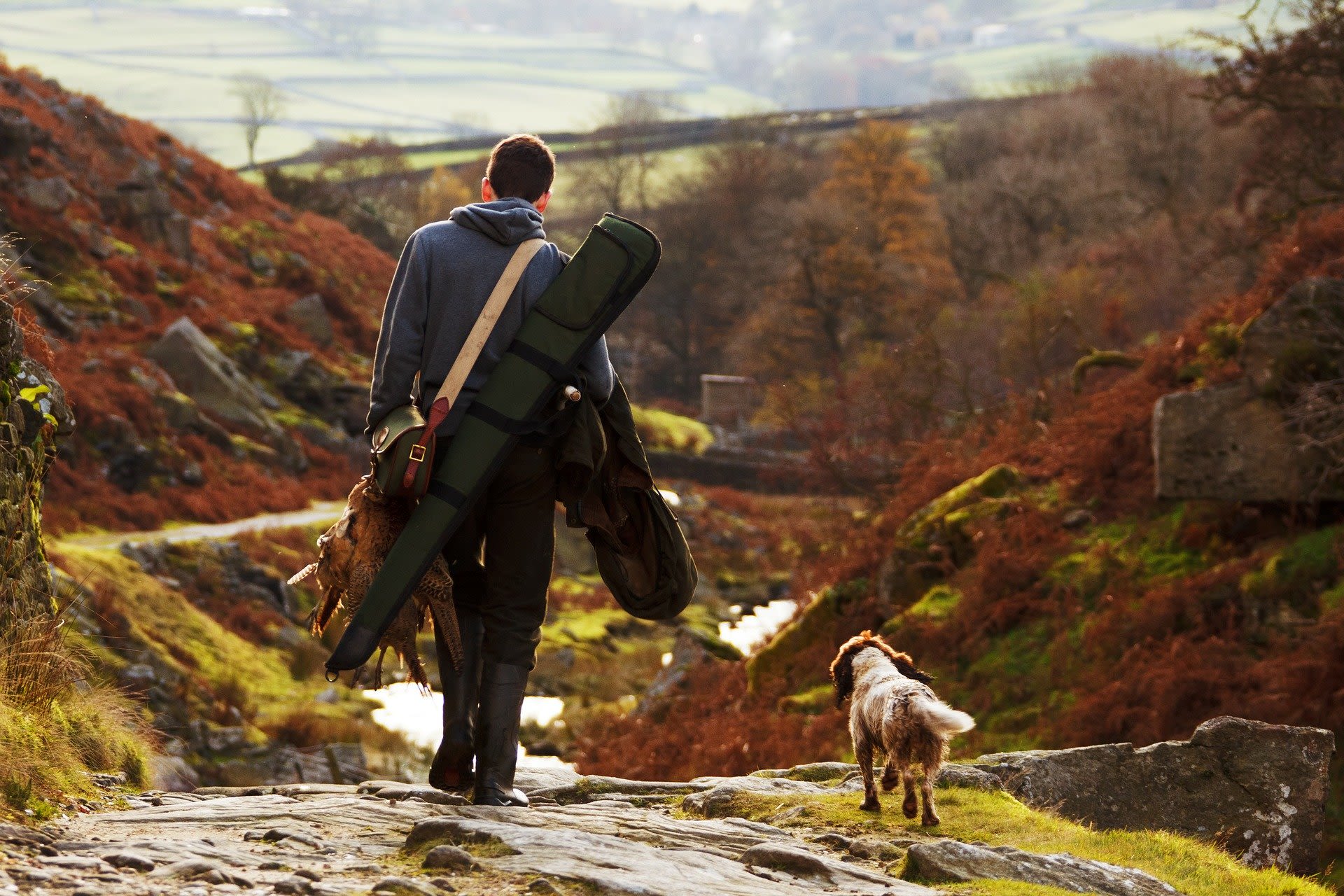
What impact does burning peat lands have?
Kerry McCarthy MP: So can we talk then about grouse moor management, the impact it has on the natural environment, particularly the impact of burning of peat lands and the impact of flooding? So why is the burning of the moors such a bad thing?
Chris Packham: We were talking about significant environmental damage from the ground up. We've mentioned overgrazing by sheep, which is preventing the regeneration of the natural…what we call the climax community of this area, which would be woodland in many places despite its altitude.
There is also, of course, the tons and tons of lead shot that rained over these moors for years, which are now in the soil being leached out into that groundwater, which could find its way into humans.
Kerry McCarthy MP: Because it's uplands, that means the water flows down to the town, if there's no other place for it to go.
Chris Packham: But if it were not, you know, we'll move on to burning. But if it were not repeatedly drained and burned, it would be a wet upland wooded habitat. And it would soak up all of that rainfall. And it would allow all that rainfall to permeate out far more slowly.
And that brings us on to burning. And the reason that burning takes place is that it promotes the growth of new fresh shoots, and red grouse, the species that we're talking about, feed principally on heather shoots. So on many of the estates every year, strip burning takes place [...which has a disastrous impact on the peat.]
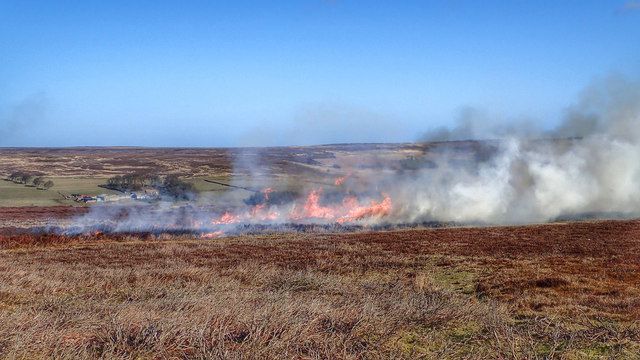
What are the economic benefits of Grouse shooting?
Kerry McCarthy MP: So you also said that you weren't happy when the Government said that this was of economic benefit to local communities. Can you say a little bit, who owns the grouse moors? Who is profiting from this? And you know, presumably it brings jobs in from the local community. So is there not an argument for saying that it ought to be allowed on those grounds?
Chris Packham: I wish I could talk with authority on that, and I can't. And that's simply because I don't have the data. In England, I can't tell you with any degree of accuracy how much money is going where, who it's benefiting and who it's not.
And because those figures aren't reliable, the figures that I can access, and that's something that we've long called for. We've asked for an independent assessment of the value of driven grouse shooting but we don't have one.
Kerry McCarthy MP: Can you give us some idea of the numbers of birds that are shot each year? The number of grouse that are shot as a result of drive grouse shooting?
Chris Packham: I’m very pleased that you've asked me that question because I'm so pleased to be able to say no. It's extraordinary that an industry that brags about its ability as a conservation agency, as it were, doesn't have that sort of figure.
But then we don't have bag totals anywhere, Kerry, in the UK. If you go to Europe, the numbers of birds shot each year are very carefully and diligently recorded by all of the shooters, and they are nationally assessed to inform conservation decisions in terms of habitat and looking after those species. But in the UK, I'm sure it will strike you and everyone else is unbelievable, but we do not have those bag totals.

What might the solutions be?
Kerry McCarthy MP: Could the issues that you talk about be dealt with other than by a ban, or do you feel that a ban is the only answer?
Chris Packham: I sadly feel it’s the only answer. We've asked for voluntary agreements, we've seen them flouted. There have been voluntary moratoriums on burning. But they’ve still been out with the matches.
And particularly what we've learnt in this lockdown where so many people have found nature as a source of respite and solace, simple things in their garden, simple things that they've encountered on their walks. Grouse shooting is not compatible with contemporary conservation. It's incapable of self-regulation when it comes to burning, when it comes to the illegal persecution of birds of prey. So I say ban it and ban it now.

You can watch the full 40 minute conversation on Youtube
You can read the full transcript for this interview here.
You can find out what the next steps for this petition are on our website or follow us on twitter for regular updates.
If you want to start a petition of your own on an issue that you care about you can do so on the UK Parliament Petitions page.
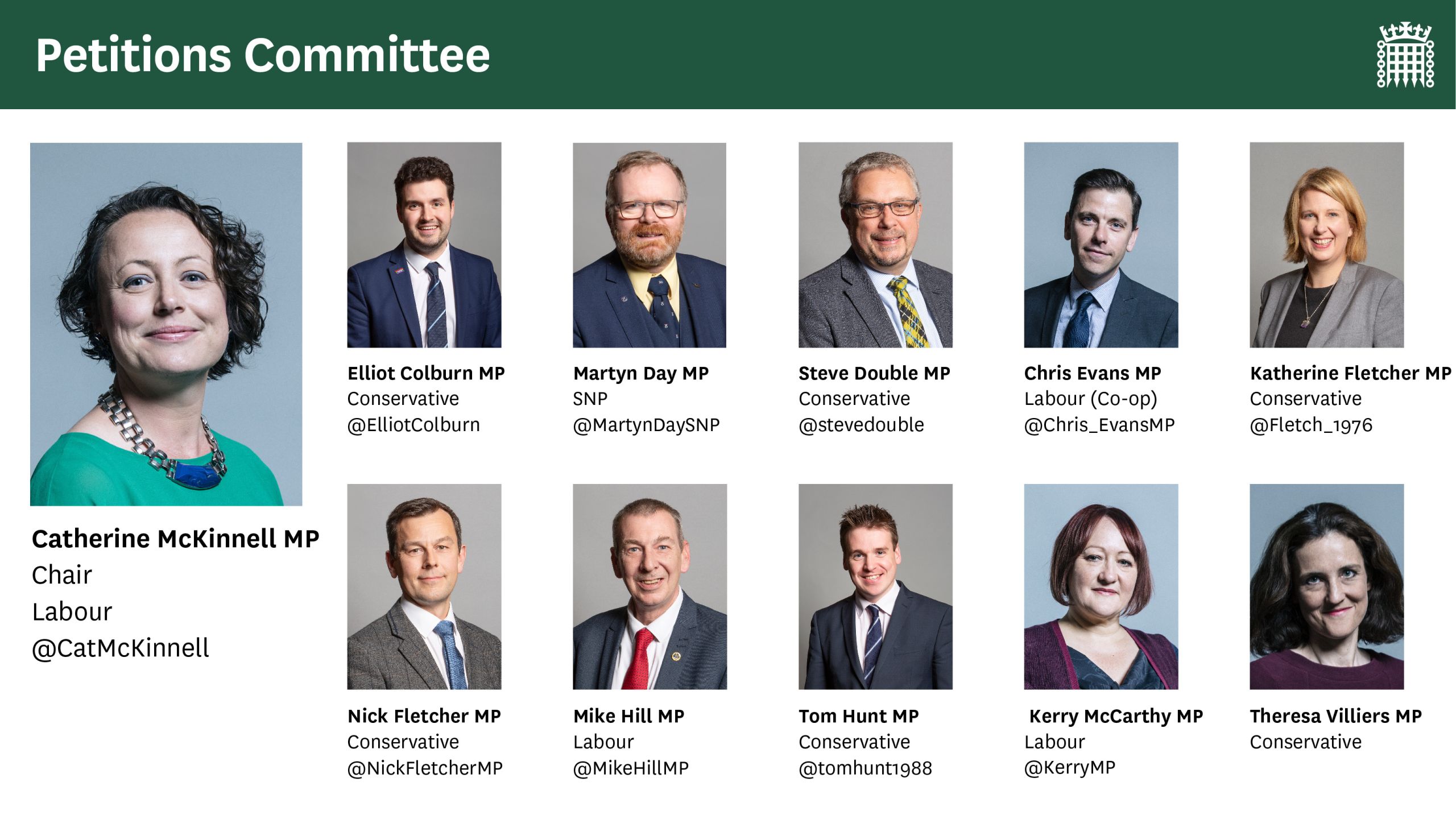
The Petitions Committee is a cross-party committee of MPs that considers e-petitions submitted on Parliament’s petitions website and public (paper) petitions presented to the House of Commons, engaging the public directly with the work of the House.
Title Image source: chris-j-walker from unsplash.co.uk
